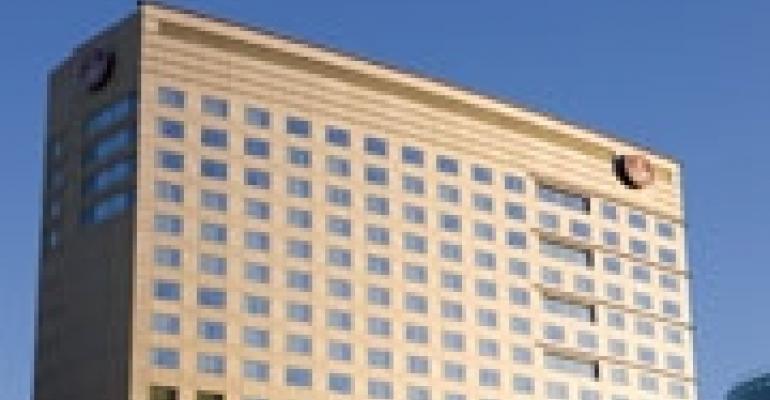
Two of the world’s largest hotel chains hope to take some of the headaches out of high tech.
InterContinental Hotels Group PLC and Marriott International Inc. have embarked on projects designed to simplify information technology functions at their properties. InterContinental’s “Hotel in a Box” will revamp the selection and installation of high-tech components in new hotels by grouping those tasks under one vendor, IBM Corp.
Meanwhile, Marriott’s “Clear Sky” aims to unite the employee and guest IT networks within a property. Marriott is piloting Clear Sky at its new Renaissance Boston Waterfront Hotel. AT&T Corp. is overseeing the Boston project and is poised to be the go-to vendor for Clear Sky at other properties.
InterContinental and Marriott are at the forefront of addressing a major source of frustration – IT – among hotel operators large and small around the world, particularly as hotel technology evolves. Results of a survey released earlier this year by the American Hotel & Lodging Association indicate that systems integration – the marriage of hardware and software products from a variety of vendors – ranks among the top IT issues for hotel executives.
Years of effort to more easily integrate systems from different vendors have not had the desired effect on hotel operations, according to a report on the survey results. From the operators’ perspective, the systems data apparently is not integrating in a way that is useful.
Across the board, hotel chains like InterContinental and Marriott are grappling with how to incorporate IT innovations into their properties.
“What we’re seeing as a trend is much more recognition that the value of the innovations is potentially less in the innovations themselves and more in the ability to get them to agree with the systems that are already in place,” says Douglas Rice, executive vice president and CEO of Hotel Technology Next Generation, a Schaumburg, Ill.-based trade association.
At InterContinental, the first phase of Hotel in a Box is scheduled to kick off this fall, says Gustaaf Schrils, the company’s vice president of hotel technology and services. Systems that will be bundled under IBM’s direction include telecommunications, property management, wired and wireless, video surveillance and electronic door locking. Energy management and point-of-sale systems aren’t part of the initial setup, Schrils says, but they are likely to be added later.
Typically, a hotel operates with dozens of separate IT components. As it stands now, when an owner contracts with each IT vendor individually, it causes confusion about which IT systems and service providers to choose, says Schrils. Just as a general contractor supervises construction of a hotel, IBM will manage assembly and installation of IT systems for InterContinental.
The nearly 4,000 hotels under the InterContinental name encompass seven brands: InterContinental, Crowne Plaza, Hotel Indigo, Holiday Inn, Holiday Inn Express, Staybridge Suites and Candlewood Suites. The first phase of Hotel in a Box affects only new limited-service properties in the United States. IBM is looking at IT retrofits for existing hotels as well, Schrils says.
Schrils envisions cost savings for InterContinental’s hotels as a result of streamlined IT procurement, consolidation of scattered IT applications onto a single computer server, decreased demand for IT labor and a reduction in help-desk calls.
Streamlining also is one of the goals of Marriott’s Clear Sky. Today, numerous networks – or “clouds” – support different IT functions at Marriott hotels, requiring a great deal of management and maintenance. With Clear Sky, those “clouds” will be cleared, as the IT networks for employees and guests will operate as one.
Clear Sky will allow Marriott hotels to easily embrace IT advancements, such as IP-based guest phones and Internet-based TV services, says Ed Goldman, vice president of technology strategy at Marriott. One of the benefits can already be seen at the new Boston hotel: Employees now can control IT bandwidth in meeting rooms based on the demands of groups occupying the space, says Page Petry, senior vice president of information resources at Marriott. Brands in the Marriott family of more than 3,000 properties include Marriott, JW Marriott, The Ritz-Carlton, Renaissance, Residence Inn, Courtyard, TownePlace Suites, Fairfield Inn, SpringHill Suites and Bulgari.
The Clear Sky pilot in Boston is set to wrap up in August. Then, the project should be “ready for prime time” at other Marriott properties, Goldman says. Both new and existing hotels are expected to get the Clear Sky treatment.

